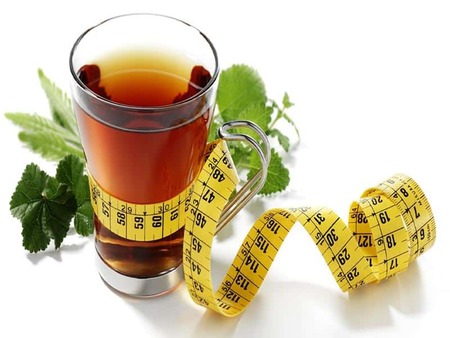
Benefits of herbal tea for weight loss

Tea is consumed by people everywhere. There are hundreds of types, ranging from green to oolong, white to black. They are all endowed with large levels of flavonoids, which are compounds that promote health. They are therefore, believed to reduce inflammation and offer protection against diseases like diabetes and heart disease. Many different varieties of teas help in weight loss and eliminating abdominal fat.
Dried herbs, flowers, fruits, and/or spices are steeped in hot water to make herbal teas. They have the potential to be hydrated and have bioactive substances with potential health advantages, like antioxidant and anti-inflammatory qualities. However, since consuming too much tea can have negative side effects, you should only drink three to four cups of herbal tea per day. The majority of herbal teas have diuretic properties, which might cause frequent urination. Herbal teas should also be avoided if you take any medications that may interact with certain allergies or specific conditions. Additionally, some people might have adverse consequences including unsettled stomachs.
Can tea, however, aid in weight loss?
It's unlikely that drinking a cup of this herbal beverage every day can help you fit back into your little jeans. However, when combined with a balanced diet and exercise regimen, tea may help you lose a very tiny amount of weight, according to some research. And think about this: You can reduce your daily calorie intake by over 300 by substituting a cup of tea with lemon for your morning mocha latte.
Catechins, a kind of flavonoid found in tea, may increase metabolism and facilitate the body's faster breakdown of lipids. Additionally, a lot of teas include caffeine, which raises your body's energy expenditure and promotes calorie burning. If there is any potential weight reduction, these two chemicals are most likely to perform well together.
Tea can help you maintain your weight loss after you've dropped it because it doesn't cause the typical slowing in metabolism that occurs after losing a few pounds. The Camellia sinensis leaves are the source of all tea varieties. However, the methods used to process the leaves vary, making each tea unique.
-
Black Tea
This kind of tea is frequently used to make iced tea. It passes through an oxidation process, which gives it the ability to change chemically and frequently results in an increase in caffeine content. The flavor of the tea is deep and potent. It's not clear if it aids in weight loss. However, studies conducted on rats indicate that compounds found in black tea called polyphenols may be able to prevent the intestines from absorbing fat.
However, be careful what you put in your tea. If black tea is consumed in the English manner, that is, with milk, its fat-blocking properties may be diminished.
-
Green Tea
Typically, green tea does not oxidize. All that is done is steam the leaves and then crush them by hand.
It has a particularly high concentration of EGCG, the most powerful kind of catechin. According to some research, those who drank green tea boosted with catechins or took an EGCG-rich green tea extract lost a little weight over three months—roughly three pounds.
You would need to consume six or seven cups of your usual green tea each day to obtain the same quantity of EGCG used in the study. Green tea extracts are not always safe. Rare as they may be, high-dose tea extracts have been connected to major liver damage in several weight-loss supplements. You can effectively lose weight with green tea.
-
Oolong Tea
Tea leaves are first allowed to wither in the scorching sun before being subjected to an oxidation procedure to create this tea. Similar to green tea, it has a high catechin content. In one study, those who drank oolong tea daily for six weeks who were overweight shed over two-thirds of their body weight and reduced abdominal fat.
-
White Tea
The least processed tea has a delicate, sweet flavor. Does it taste as good as it looks on the waist? White tea inhibited the growth of new fat cells and accelerated the breakdown of already-existing ones, according to lab research. It remains to be seen if it has the same effects on the human body. This tea is good for your overall well-being.
Conclusion:
Enjoy a cup of tea on its own, with a morning toast, with an afternoon snack, or with anything else you prefer. As long as the caffeine doesn't make you jittery, it's safe to consume. Furthermore, it might even aid in the prevention of diabetes, heart disease, and cancer.
You might even see a small boost in your weight-loss efforts if you drink a few cups of tea every day. Just don't anticipate small-scale miracles. Changes in food and exercise are essential components of a whole lifestyle strategy for effective weight loss.
Please contact Rajas Cafe to discuss your weight reduction journey so that we can be of more assistance to you.
